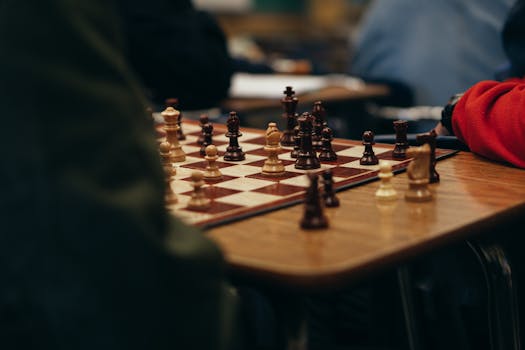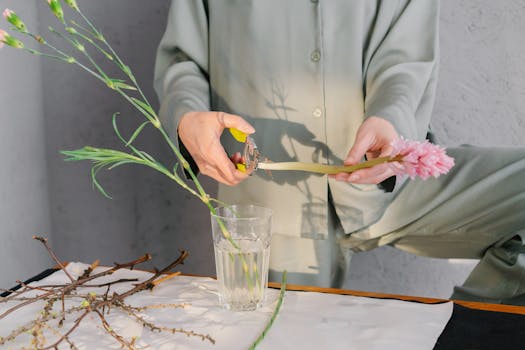Embrace a Vibrant Lifestyle: Tips for a Fulfilling Life
Takeaways: In this article, we explore various aspects of lifestyle improvement, including the importance of mindfulness, physical wellness, and personal growth. You will learn practical tips to enhance your daily routine, foster better relationships, and cultivate a positive mindset.
Understanding Lifestyle: What Does It Mean?
Defining Lifestyle

The Importance of a Healthy Lifestyle
A healthy lifestyle is crucial for physical and mental well-being. It includes regular exercise, balanced nutrition, and sufficient rest. Research shows that adopting positive lifestyle changes can lead to improved mood, increased energy levels, and a longer life.
Assessing Your Current Lifestyle
To embark on a journey of lifestyle improvement, start by assessing your current habits. Keep a journal for a week to track your daily activities, diet, and feelings. This reflection can help identify areas for change.
Mindfulness: The Foundation of a Vibrant Lifestyle
What is Mindfulness?

The Benefits of Mindfulness
Practicing mindfulness can lead to reduced stress, improved emotional regulation, and enhanced focus. Studies suggest that mindfulness can also improve physical health by lowering blood pressure and enhancing immune function.
Incorporating Mindfulness into Your Daily Routine
To integrate mindfulness into your lifestyle, consider starting with short meditation sessions. Gradually increase the duration as you become more comfortable. Additionally, practice mindfulness during daily activities, such as eating or walking, by focusing on the sensations and experiences involved.
Physical Wellness: Your Body, Your Temple
Nutrition: Eating for Energy

Exercise: Moving Your Body
Regular physical activity is essential for maintaining a healthy lifestyle. Aim for at least 150 minutes of moderate aerobic activity each week, combined with strength training exercises. Find activities you enjoy to make exercise a fun part of your routine.
Rest and Recovery: The Unsung Heroes
Never underestimate the power of rest. Adequate sleep is crucial for recovery and overall health. Aim for 7-9 hours of quality sleep each night. Establish a calming bedtime routine and create an environment conducive to sleep.
Personal Growth: Becoming the Best Version of Yourself
Setting Goals: The Roadmap to Success

Continuous Learning: Expanding Your Horizons
Embrace lifelong learning to foster personal growth. Read books, take courses, or attend workshops to gain new skills and knowledge. This not only enhances your career prospects but also enriches your life.
Building Resilience: Overcoming Challenges
Resilience is the ability to bounce back from setbacks. Cultivating resilience involves developing a positive mindset, maintaining strong social connections, and practicing self-compassion. Embrace challenges as opportunities for growth.
Fostering Meaningful Relationships
The Importance of Social Connections

Effective Communication: The Key to Healthy Relationships
Good communication is the foundation of any healthy relationship. Practice active listening and express your thoughts and feelings openly. Be mindful of non-verbal cues and strive for empathy in your interactions.
Setting Boundaries: Protecting Your Well-Being
Establishing healthy boundaries is essential for maintaining balanced relationships. Learn to say no when necessary and prioritize your own needs. This fosters mutual respect and understanding.
Creating a Positive Environment
Decluttering Your Space

Incorporating Nature: The Benefits of the Outdoors
Spending time in nature has numerous benefits for mental health. Aim to incorporate outdoor activities into your routine, whether that’s hiking, gardening, or simply walking in a park. Nature can help reduce stress and improve mood.
Creating a Calm Atmosphere at Home
Design your home to promote relaxation and peace. Use calming colors, natural light, and soothing scents. Create a cozy nook for reading or meditation to encourage downtime.
Conclusion

FAQs
What is the best way to start living a healthier lifestyle?

How can I practice mindfulness in my daily life?
Incorporate mindfulness into your routine by practicing meditation, focusing on your breath, and being present during daily activities. Start with just a few minutes a day and gradually increase the time.
Why are social connections important for well-being?
Social connections provide emotional support, reduce feelings of loneliness, and contribute to a sense of belonging. Strong relationships can enhance your overall happiness and resilience in times of stress.
How can I find time for personal growth in my busy schedule?
Set aside dedicated time each week for personal development activities, such as reading, taking classes, or pursuing hobbies. Prioritizing this time is essential for your growth.






